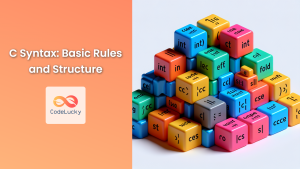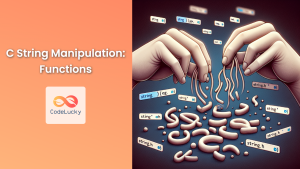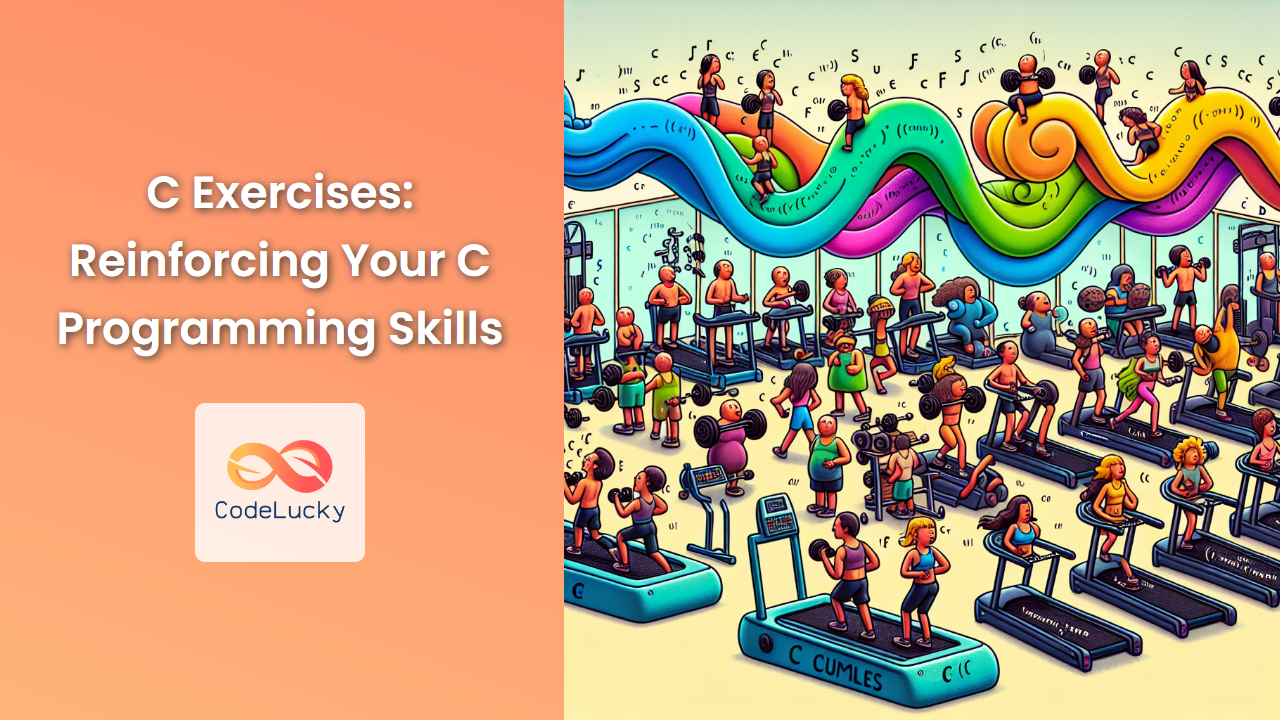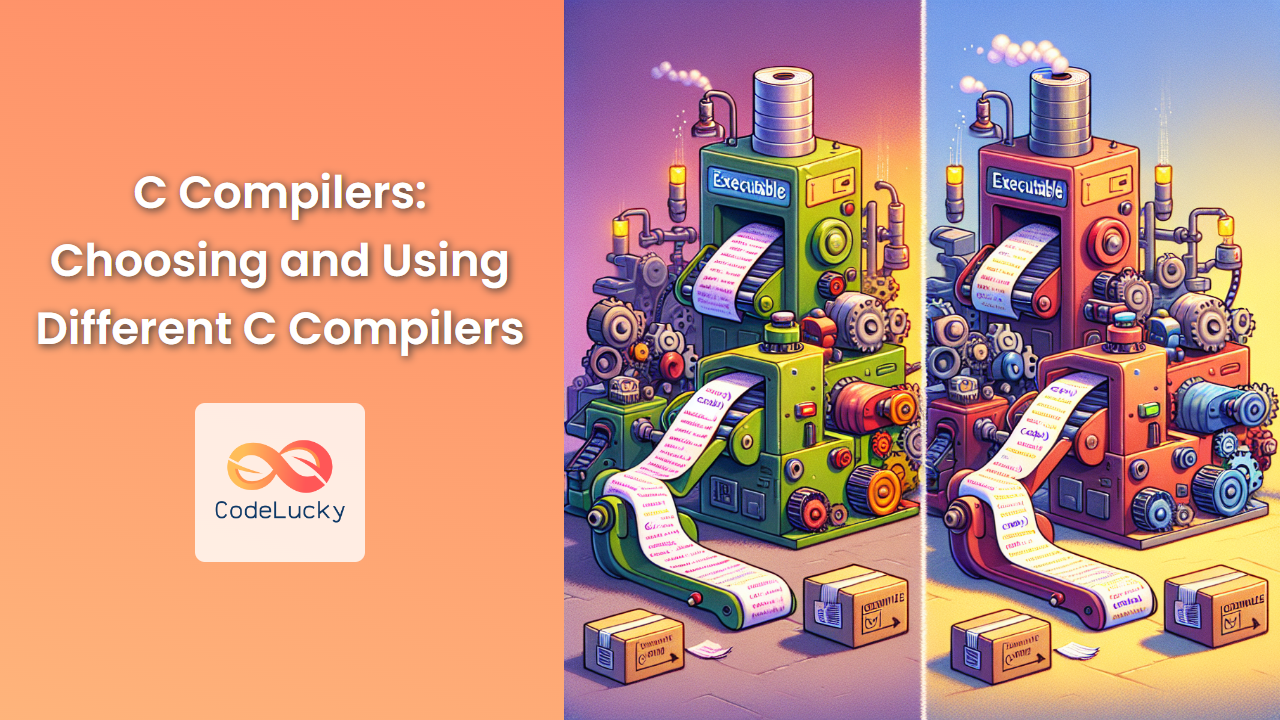Function pointers are a powerful feature in C that allow you to treat functions as data. They provide a level of flexibility and abstraction that can significantly enhance your programming capabilities. In this comprehensive guide, we'll dive deep into the world of function pointers, exploring their syntax, usage, and practical applications.
Understanding Function Pointers
Function pointers, as the name suggests, are pointers that point to functions instead of data. They store the memory address of a function, allowing you to call the function indirectly through the pointer.
Syntax of Function Pointers
The syntax for declaring a function pointer can be a bit tricky at first. Here's the general form:
return_type (*pointer_name)(parameter_types);
Let's break this down:
return_type: The return type of the function the pointer will point to.*pointer_name: The name of the pointer, preceded by an asterisk.parameter_types: The parameter types of the function, enclosed in parentheses.
For example, to declare a pointer to a function that takes two integers and returns an integer:
int (*operation)(int, int);
Initializing Function Pointers
To initialize a function pointer, you simply assign it the address of a compatible function. Here's an example:
#include <stdio.h>
int add(int a, int b) {
return a + b;
}
int main() {
int (*operation)(int, int);
operation = &add; // Initializing the function pointer
int result = operation(5, 3); // Calling the function through the pointer
printf("Result: %d\n", result);
return 0;
}
In this example, we declare a function pointer operation and initialize it with the address of the add function. We then use the pointer to call the function.
📝 Note: You can also omit the & when assigning a function to a pointer, as function names automatically decay to pointers in most contexts.
Practical Applications of Function Pointers
Function pointers have numerous practical applications. Let's explore some of them with detailed examples.
1. Implementing Callback Functions
Callback functions are a common use case for function pointers. They allow you to pass behavior as an argument to another function.
#include <stdio.h>
void process_array(int arr[], int size, void (*process)(int)) {
for (int i = 0; i < size; i++) {
process(arr[i]);
}
}
void print_element(int n) {
printf("%d ", n);
}
void square_element(int n) {
printf("%d ", n * n);
}
int main() {
int numbers[] = {1, 2, 3, 4, 5};
int size = sizeof(numbers) / sizeof(numbers[0]);
printf("Original array: ");
process_array(numbers, size, print_element);
printf("\nSquared array: ");
process_array(numbers, size, square_element);
return 0;
}
Output:
Original array: 1 2 3 4 5
Squared array: 1 4 9 16 25
In this example, process_array takes a function pointer as an argument, allowing us to pass different behaviors (print_element and square_element) to process the array elements.
2. Creating Function Dispatch Tables
Function pointers are excellent for implementing dispatch tables, which can be used to select and execute functions based on runtime conditions.
#include <stdio.h>
int add(int a, int b) { return a + b; }
int subtract(int a, int b) { return a - b; }
int multiply(int a, int b) { return a * b; }
int divide(int a, int b) { return b != 0 ? a / b : 0; }
int (*operations[])(int, int) = {add, subtract, multiply, divide};
char *operation_names[] = {"Add", "Subtract", "Multiply", "Divide"};
int main() {
int a = 10, b = 5;
for (int i = 0; i < 4; i++) {
int result = operations[i](a, b);
printf("%s: %d %s %d = %d\n", operation_names[i], a,
i == 0 ? "+" : i == 1 ? "-" : i == 2 ? "*" : "/", b, result);
}
return 0;
}
Output:
Add: 10 + 5 = 15
Subtract: 10 - 5 = 5
Multiply: 10 * 5 = 50
Divide: 10 / 5 = 2
Here, we create an array of function pointers (operations) and use it to execute different arithmetic operations based on the array index.
3. Implementing State Machines
Function pointers can be used to implement state machines elegantly. Each state can be represented by a function, and transitions between states can be managed by changing function pointers.
#include <stdio.h>
typedef enum {
STATE_IDLE,
STATE_ACTIVE,
STATE_PAUSED
} State;
void idle_state(void);
void active_state(void);
void paused_state(void);
void (*current_state)(void) = idle_state;
void idle_state(void) {
printf("Idle State: Waiting for activation\n");
current_state = active_state;
}
void active_state(void) {
printf("Active State: Processing data\n");
current_state = paused_state;
}
void paused_state(void) {
printf("Paused State: Operation suspended\n");
current_state = idle_state;
}
int main() {
for (int i = 0; i < 6; i++) {
current_state();
}
return 0;
}
Output:
Idle State: Waiting for activation
Active State: Processing data
Paused State: Operation suspended
Idle State: Waiting for activation
Active State: Processing data
Paused State: Operation suspended
In this example, we use a function pointer current_state to represent the current state of our system. Each state function updates the current_state pointer to implement state transitions.
Advanced Concepts with Function Pointers
Let's explore some more advanced concepts related to function pointers.
Function Pointers as Arguments
Function pointers can be passed as arguments to other functions, allowing for highly flexible and reusable code.
#include <stdio.h>
#include <stdlib.h>
#include <time.h>
int compare_int(const void *a, const void *b) {
return (*(int*)a - *(int*)b);
}
int compare_int_desc(const void *a, const void *b) {
return (*(int*)b - *(int*)a);
}
void print_array(int arr[], int size) {
for (int i = 0; i < size; i++) {
printf("%d ", arr[i]);
}
printf("\n");
}
int main() {
int numbers[] = {64, 34, 25, 12, 22, 11, 90};
int size = sizeof(numbers) / sizeof(numbers[0]);
printf("Original array: ");
print_array(numbers, size);
qsort(numbers, size, sizeof(int), compare_int);
printf("Sorted ascending: ");
print_array(numbers, size);
qsort(numbers, size, sizeof(int), compare_int_desc);
printf("Sorted descending: ");
print_array(numbers, size);
return 0;
}
Output:
Original array: 64 34 25 12 22 11 90
Sorted ascending: 11 12 22 25 34 64 90
Sorted descending: 90 64 34 25 22 12 11
In this example, we use the standard library function qsort, which takes a function pointer as an argument to determine the sorting order.
Function Pointers and Structures
Function pointers can be members of structures, allowing for object-oriented-like behavior in C.
#include <stdio.h>
#include <string.h>
struct Animal {
char name[20];
void (*make_sound)(void);
};
void dog_sound(void) {
printf("Woof!\n");
}
void cat_sound(void) {
printf("Meow!\n");
}
void cow_sound(void) {
printf("Moo!\n");
}
int main() {
struct Animal farm[3];
strcpy(farm[0].name, "Dog");
farm[0].make_sound = dog_sound;
strcpy(farm[1].name, "Cat");
farm[1].make_sound = cat_sound;
strcpy(farm[2].name, "Cow");
farm[2].make_sound = cow_sound;
for (int i = 0; i < 3; i++) {
printf("%s says: ", farm[i].name);
farm[i].make_sound();
}
return 0;
}
Output:
Dog says: Woof!
Cat says: Meow!
Cow says: Moo!
Here, we define a structure Animal with a function pointer make_sound. This allows us to associate different sounds with different animals, demonstrating a simple form of polymorphism in C.
Best Practices and Considerations
When working with function pointers, keep these best practices in mind:
-
🔍 Type Safety: Always ensure that the function pointer type matches the function it points to. Mismatched types can lead to undefined behavior.
-
🛡️ Null Checks: Before dereferencing a function pointer, check if it's not NULL to avoid potential crashes.
-
📚 Documentation: Clearly document the expected signature of functions that can be assigned to a function pointer, especially when used in public APIs.
-
🔄 Consistency: Maintain consistency in how you declare and use function pointers throughout your codebase.
-
🏷️ Typedef: Consider using typedef to create more readable function pointer types, especially for complex signatures.
Conclusion
Function pointers are a powerful feature in C that opens up a world of programming possibilities. They allow for dynamic behavior, callback mechanisms, and can even simulate object-oriented concepts in C. By mastering function pointers, you'll be able to write more flexible, modular, and efficient C code.
Remember, like any powerful tool, function pointers should be used judiciously. They can make code more complex and harder to understand if overused. Always strive for clarity and simplicity in your code, using function pointers where they provide clear benefits in terms of flexibility or code organization.
With practice and experience, you'll develop a keen sense of when and how to best utilize function pointers in your C programs. Happy coding! 🚀👨💻👩💻

















